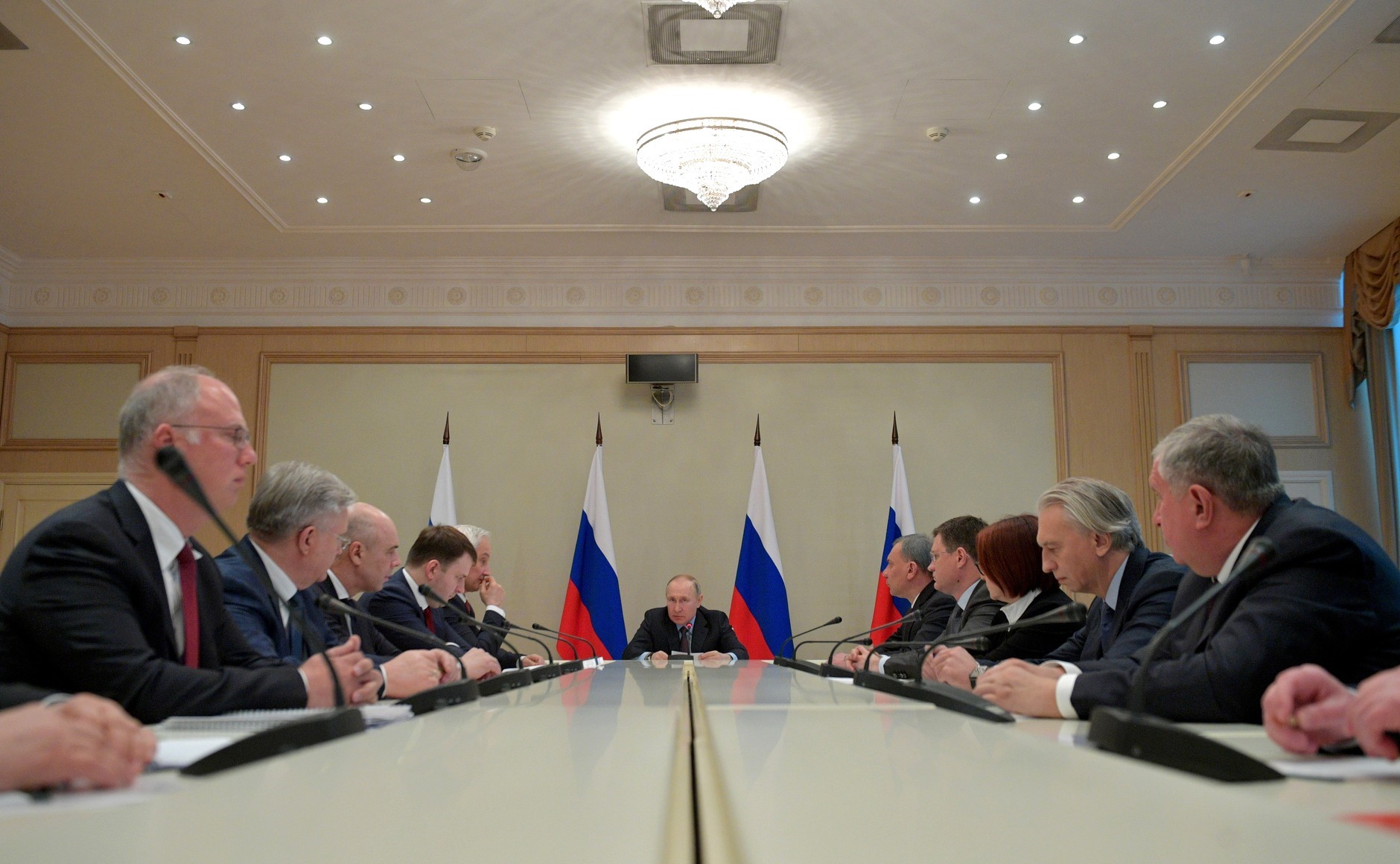RUSSIA MONITOR
Date: 1 March 2020
OPEC+ And Coronavirus: Russia and Saudi Arabia Divided Over Oil Supply Cuts
With the coronavirus fanning out across the globe, oil producers have also been at risk as countries, especially China, saw a massive drop in demand for crude, a tendency going hand in hand with plunging prices. Saudi Arabia is pushing to make a substantial cut in oil production under the OPEC+ pact. There are yet signs that Russia will resist to the Saudi plan. Russian President Vladimir Putin said that current oil prices are “acceptable” for Russia.

Under OPEC+, countries determine the level of oil output or agree on how to trim further supplies. The alliance spans all 13 OPEC nations, plus ten non-members being the world’s top oil producers. The former’s leader is Saudi Arabia, while the latter’s –– Russia. It is only with efficient cooperation between these two that the oil cartel can run smoothly. At present, there is a row between Moscow and Riyadh over a potential response to the drop in oil prices amid the virus-driven demand shock.
Saudi oil deliveries to China have dropped by one-third so far in March. Saudi Arabia is pushing for cutting deeper by a further 1 million barrels per day. Moscow is gearing up to keep the agreed level of oil output by late March. Back in the first half of February, Russian Energy Minister Alexander Novak met with domestic energy producers. As it turned out, the energy firms did not accept to add any modification to a deal to curb oil output. Nor did Moscow give its go-ahead for a possible OPEC+ extraordinary meeting, as requested by Saudi Arabia. OPEC+ is due to meet in Vienna on March 5–6 as scheduled. Several key members of OPEC, including Saudi Arabia, are likely to call for a bigger than previously expected output cut to prevent prices from dropping any further.
Support Us
If content prepared by Warsaw Institute team is useful for you, please support our actions. Donations from private persons are necessary for the continuation of our mission.
But Russia may raise objections. “I want to stress that for the Russian budget, for our economy, the current oil prices level is acceptable,” Putin told a meeting with Russian energy officials and producers on March 1. Russia envisages in its budget an average Brent crude price of $42.40 a barrel. “Our accumulated reserves, including the National Wealth Fund, are enough for ensuring a stable situation, the fulfillment of all budget and social liabilities, even under a possible deterioration of the global economic situation,” Putin said. The president’s words came ahead of the OPEC+ meeting in Vienna, where the bloc’s members will discuss further steps over the impact of coronavirus on oil demand and prices. If Russia continues to resist new output curbs, a compromise deal may come out, with restrained oil production referring to all OPEC+ members except for Russia. Saudi Arabia is pushing both for maintaining OPEC+ and cooperation with Moscow –– and so is Putin’s intention –– so it could be ready to bear the brunt of further costs in the name of keeping Russia in the cartel.
All texts published by the Warsaw Institute Foundation may be disseminated on the condition that their origin is credited. Images may not be used without permission.















